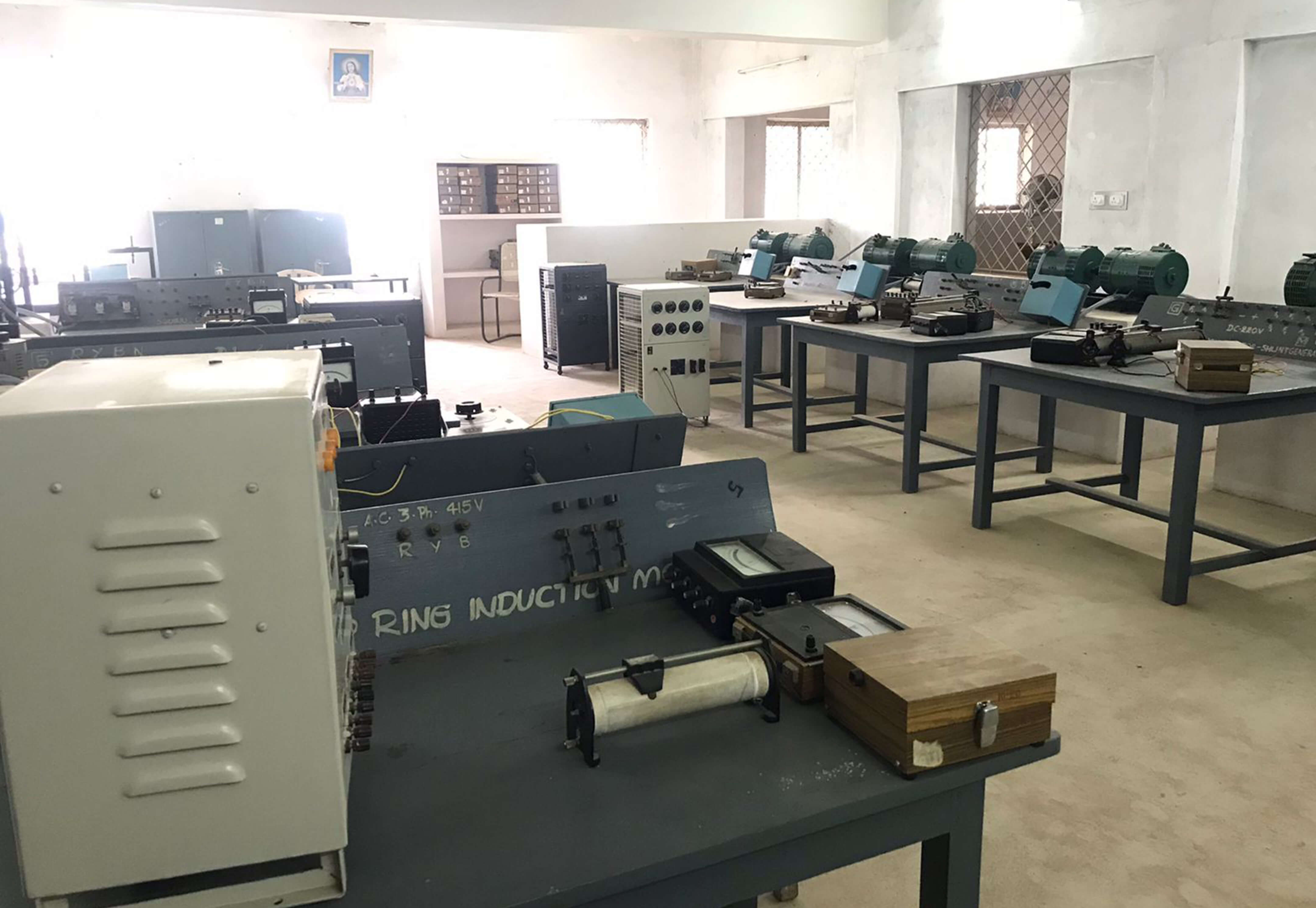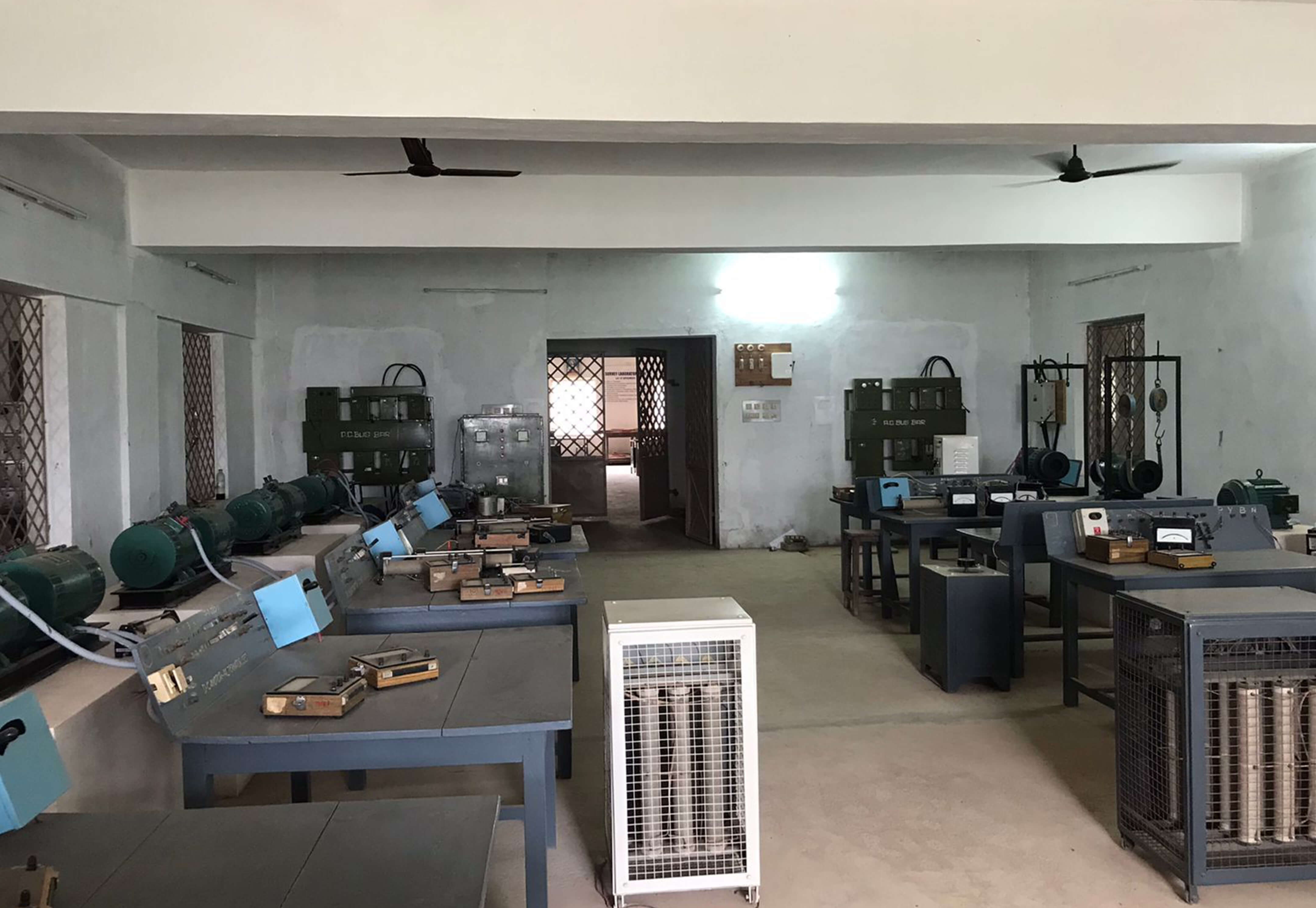The Department of Electrical and Electronics Engineering (EEE) at Jayamatha Engineering College was established in 1995 with the approval of AICTE, offering a B.E. in Electrical and Electronics Engineering. The department focuses on both theoretical and practical aspects of electrical and electronics engineering, providing students with a robust foundation in the field. With a well-qualified, experienced, and dedicated faculty, the department has established itself as a hub of quality education in electrical engineering.
The department emphasizes a practical approach to learning, supported by well-equipped laboratories and modern infrastructure. Students are provided with the opportunity to work on real-world problems, participate in research, and engage in industry collaborations.
Objective
The primary objective of the Electrical and Electronics Engineering Department is to develop the department into a center of excellence, providing high-quality education and meeting the local and regional needs of the electrical engineering industry. The department aims to produce skilled graduates equipped with the knowledge, technical expertise, and leadership qualities required to thrive in a fast-changing technological environment.
Key Laboratories and Facilities
The department provides hands-on experience through well-equipped laboratories, enabling students to apply theoretical concepts in a practical setting. Some of the key laboratories include:
- Electrical Workshop:
- Provides practical knowledge about wiring, winding of transformers, and machine operations. This workshop is essential for students across multiple engineering branches.
- Electrical Machines Lab:
- Focuses on the characteristics and behavior of DC and AC machines, helping students understand the core concepts of electrical machines.
- Control System Lab:
- Introduces students to fundamental control system theory and focuses on the design and implementation of control systems using MATLAB. The lab is equipped with devices such as AC/DC servomotors, position control systems, and controller design kits.
- Measurements and Instrumentation Lab:
- Focuses on measurement techniques using bridge circuits to find unknown values of resistance, inductance, and capacitance.
- Power Electronics Lab:
- Equipped with power electronic converters, digital signal processors (DSP), FPGA-based DC/AC drives, and power supplies, this lab focuses on the control of electrical power systems and motor drives.
- Power System Simulation Lab:
- Equipped with MATLAB toolboxes such as Neural Networks, Fuzzy Logic, Control Systems, and Power Systems. This lab enables students to simulate and analyze complex electrical systems using advanced software tools.
Departmental Activities
The department is committed to the holistic development of students by organizing a variety of academic and practical activities, including:
- Lectures by Industry Experts: Renowned academicians and scientists are invited to deliver lectures, keeping students updated with the latest advancements in electrical engineering.
- Industrial Visits: Regularly organized to supplement the theoretical knowledge of students with real-world industry exposure.
- In-Plant Training: Provides hands-on training and practical exposure to students, enhancing their understanding of industry operations.
- Workshops and Technical Sessions: Expert guidance is provided to students through workshops, enabling them to improve their technical knowledge, communication skills, and overall personality.
Career Opportunities for Electrical and Electronics Engineers
Graduates from the Department of Electrical and Electronics Engineering have a wide range of career opportunities in various industries. As technology continues to evolve, the demand for electrical engineers continues to grow. Here are some potential career paths:
- Power Engineer:
- Works in power generation, transmission, and distribution sectors, ensuring the efficient management of electrical energy.
- Control Engineer:
- Specializes in designing and managing control systems for industrial automation, robotics, and manufacturing processes.
- Microprocessor and Controller Engineer:
- Focuses on the design, development, and implementation of microprocessor-based systems used in various applications such as automation, electronics, and embedded systems.
- Power Electronics Engineer:
- Involved in the design and development of power electronic systems, converters, and drives used in industries like automotive, aerospace, and renewable energy.
- Robotics and Automation Engineer:
- Develops and manages robotic systems and automation technologies, ensuring precision and efficiency in manufacturing and industrial processes.
- Instrumentation Engineer:
- Specializes in the design and maintenance of instrumentation systems used in process control and monitoring, particularly in sectors like oil and gas, pharmaceuticals, and manufacturing.
- R&D Engineer:
- Focuses on research and development in areas like energy-saving devices, renewable energy, smart grids, and electric vehicles.
- Electrical Consultant:
- Provides expert advice on electrical systems design, energy efficiency, and safety standards for large infrastructure projects.
- Software Engineer (Embedded Systems):
- Designs software for embedded systems used in appliances, automotive electronics, and industrial controllers.
- Telecommunications Engineer:
- Specializes in the design and management of telecommunications systems, including wireless networks, fiber optics, and signal processing.
The Department of Electrical and Electronics Engineering at JEC provides students with the knowledge, skills, and hands-on experience needed to excel in the rapidly evolving field of electrical engineering. With a strong focus on both academic rigor and practical training, graduates from the department are well-equipped to meet the challenges of today’s technology-driven industries. The department’s commitment to producing well-rounded engineers ensures that students can pursue successful careers in a variety of fields, including power systems, automation, control systems, robotics, and microprocessors.











